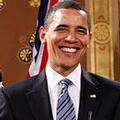 英國首相布朗(Gordon Brown)在4月1日於唐寧街10號的首相官邸與美國總統歐巴馬(Barack Obama)進行會談之後表示,全世界最大經濟體的領袖將於4月2日一項針對經濟復甦及重整的全球計畫達成協議。歐巴馬總統為能夠在倫敦高峰會(London Summit)之前獲得「非凡的整合(extraordinary convergence)」而喝采。在全世界面對全球衰退、金融體系受損、失業、糧食與燃料衝擊、持續性的貧窮及不斷增加的環境問題,20國集團(G20)的領袖齊聚倫敦來設計出一項緊急方案。
英國首相布朗(Gordon Brown)在4月1日於唐寧街10號的首相官邸與美國總統歐巴馬(Barack Obama)進行會談之後表示,全世界最大經濟體的領袖將於4月2日一項針對經濟復甦及重整的全球計畫達成協議。歐巴馬總統為能夠在倫敦高峰會(London Summit)之前獲得「非凡的整合(extraordinary convergence)」而喝采。在全世界面對全球衰退、金融體系受損、失業、糧食與燃料衝擊、持續性的貧窮及不斷增加的環境問題,20國集團(G20)的領袖齊聚倫敦來設計出一項緊急方案。
歐巴馬表示:「我絕對有信心這個會議能夠對處理這些問題所需的協調分工回應出強大的共識」。布朗也表示,全球領袖齊聚倫敦「首要之務」就是為了受經濟危機之苦以及憂慮工作、貸款與未來的一般民眾。這個高峰會的第一個試煉將會是協議對銀行、投機事業(hedge funds)與所謂的全球「影子銀行系統」(shadow banking system)採取更強大、更透明的監督行動。
在各國領袖表明他們立場之際,一個環境、開發、企業及勞工團體的全球新聯盟請求G20國家,要確保他們的財務刺激方案是一個面面俱到且兼顧環保的方案。這個聯盟成員包括國際自然保育聯盟(International Union for the Conservation of Nature)、世界自然基金會(WWF,World Wide Fund for Nature)、國際環境與發展協會(the International Institute for Environment and Development)、貿易同盟及企業團體。他們敦促G20國家要對綠色經濟進行投資。 這個聯盟在給G20領袖的一封公開信中表示:「我們建議你們提撥這個刺激方案的7500億美元(約全球GDP的1%)用在可以建構出內容廣泛及綠色經濟的投資項目上。你們可以投資在綠色基礎建設上,這些建設包括可再生的能源、可永續經營的運輸系統以及對環境友善的建築。這些建設也可以刺激創造出跨領域高品質與穩定的就業機會。」
 這封信敦促G20國家投資永續的天然資源利用,並輔以教育及健康照護措施來改善貧窮國家的生計。聯盟建議:「保護重要棲息地及生態系統設施,緩解系統化生態危機,在富人與窮人之間建構同等的恢復力。」
這封信敦促G20國家投資永續的天然資源利用,並輔以教育及健康照護措施來改善貧窮國家的生計。聯盟建議:「保護重要棲息地及生態系統設施,緩解系統化生態危機,在富人與窮人之間建構同等的恢復力。」
另外一個也敦促綠色投資來創造綠色工作機會的團體4月1日被G20高峰會排除在與會名單之外。G20主辦單位抽掉「世界發展運動(World Development Movement)」組織的與會許可。這個組織的總部位於倫敦,從事氣候正義行動。 世界發展運動主任邵斯渥斯(Benedict Southworth)表示:「我對於我們顯然是在最後一分鐘被禁止參與G20高峰會感到憤怒。我們希望這個決定不像它看起來的那樣,也就是企圖在幕後操縱情勢以防止不同的聲音及被聽到反對的意見。」
聯合國估計,支援開發中國家渡過這次危機所需的資金,在2009及2010年至少要1兆美元。聯合國秘書長潘基文(Ban Ki-moon)上週表示,這些資源有1/4是緊急性的需求,用來保護最脆弱的民眾與國家。
Leaders of the world's largest economies will agree a global plan for economic recovery and reform on April 2, said Prime Minister Gordon Brown after a meeting today with U.S. President Barack Obama at No. 10 Downing Street. President Obama hailed an "extraordinary convergence" ahead of the London Summit.
With the world facing a global recession, a broken financial system, job losses, food and fuel shocks, persistent poverty and growing environmental problems, the G-20 leaders are in London to hammer out an emergency package.
President Obama said, "I am absolutely confident that this meeting will reflect enormous consensus about the need to work in concert to deal with these problems."
Prime Minister Brown said the "first duty" of the world leaders gathering in London was to the ordinary people suffering as a result of the global economic crisis and anxious about their jobs, their mortgages and their futures. The first test for the summit would be to agree to strengthened and more transparent supervision of banks, hedge funds and what is known as the global "shadow banking system," he said.
As the leaders define their positions, a new global coalition of environmental, development, business and labor groups is calling on the G-20 to make sure their financial stimulus package is an inclusive and green one.
The coalition, which includes the International Union for the Conservation of Nature, the global conservation group WWF, the International Institute for Environment and Development, along with trade union and business groups, urges the G-20 to invest in a green economy.
"We recommend that you allocate $750 billion of this stimulus package, which is around one percent of global GDP, to investments that will build an inclusive and green economy," the coalition wrote in an open letter to the G20 leaders. "You can do this by investing in green infrastructure, such as renewable energy, sustainable transport systems, and environmentally friendly buildings which would also stimulate the creation of high quality, stable employment across a range of sectors."
The letter urges the G20 to invest in sustainable natural resource use, supplemented by education and health care to improve the livelihoods of poor people.
The coalition recommends "protection of critical habitats and ecosystem services, to mitigate systemic ecological risks and build resilience amongst rich and poor alike."
One organization that is also urging green investment to create green jobs was banned from the G20 summit today. G20 officials pulled the accreditation of the World Development Movement based in London, a group that campaigns for climate justice.
Benedict Southworth, director of the World Development Movement said, "I am outraged that we have apparently been banned at last minute from attending the G20 summit. We hope it's not what it appears to be – an attempt to stage manage events and prevent voices of dissent and disagreement from being heard."
The United Nations estimates that the total financing needed to support developing countries through the crisis is at least $1 trillion for 2009 and 2010. UN Secretary-General Ban Ki-moon said last week that a quarter of these resources are urgently needed for the protection of the most vulnerable people and countries.




